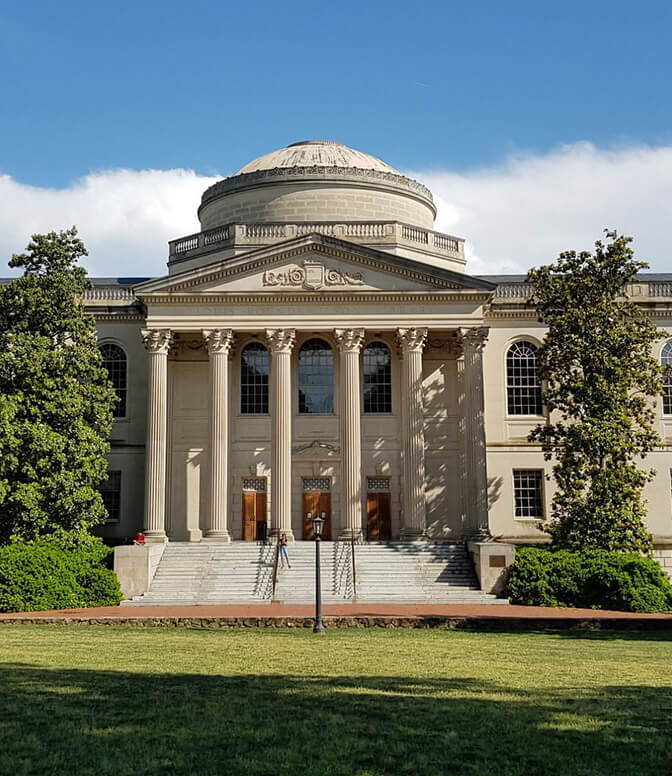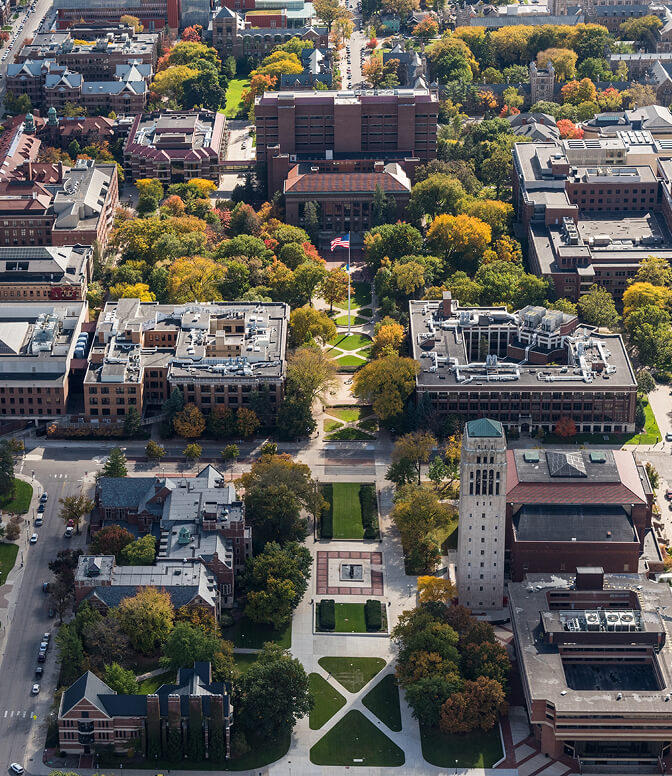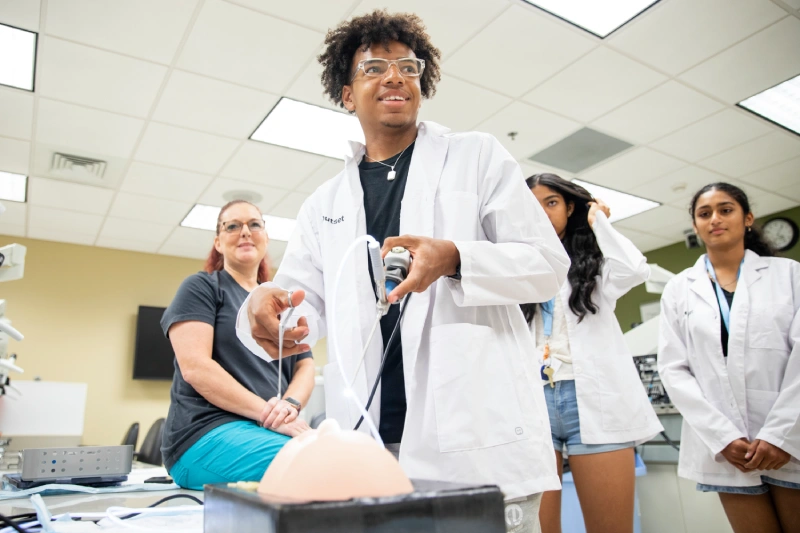Thinking biology is the only path to medical school? Think again! While biology majors do make up the largest slice of the med school pie (57.8% of matriculants), future doctors come from all kinds of academic backgrounds—physical sciences, social sciences, humanities, and specialized health fields.
The cool thing about med schools is they look at the whole you: your grades, MCAT scores, clinical experiences, and personal qualities—not just your major. The real secret to success? Pick a field you absolutely love and can excel in while completing the necessary prerequisites.
Let's dive into your options for this super important decision that could shape your future career in medicine!
Why Choosing a Pre-Med Major Matters for Future Doctors
Your choice of major can significantly shape your medical school journey, even though med schools don't require a specific undergraduate degree. It directly impacts your GPA, which is crucial for med school admissions. Science majors like biology and chemistry align well with prerequisites and MCAT content but can make it harder to maintain a high GPA due to competitive grading curves. Non-science majors may offer a GPA advantage while still allowing completion of the necessary coursework.
Your major also affects how prepared you'll be for the MCAT, which tests knowledge in biological and physical sciences, psychology, sociology, and critical reasoning. While science majors may naturally cover much of this material, non-science majors will need to focus on the social science content to be well-prepared. Whichever major you choose, it's important to focus on the courses that will best prepare you for this exam.
Ultimately, the most important factor is studying a subject that genuinely interests you. Passion for your major often leads to better grades and keeps you motivated throughout your undergraduate years. Med schools value diversity in backgrounds and perspectives, so choosing a major that aligns with your interests, strengths, and curiosity is key to succeeding in both your studies and medical school applications.
Top 20 Pre-Med Majors
Certain programs offer distinct advantages in developing the knowledge and skills needed for success in medicine. Here's a breakdown of top choices for future doctors.
1. Biology
Biology is the most popular pre-med major, covering human anatomy, genetics, and microbiology—key for medical school. Nearly 58% of medical school matriculants in 2020 majored in biological sciences. It aligns with MCAT topics and first-year coursework, streamlining academic planning while building a solid scientific foundation for future physicians.
2. Biochemistry
Biochemistry explores molecular biology and chemical processes in living organisms, preparing students for medical studies. It strengthens MCAT performance, especially in biochemistry, and provides insight into disease mechanisms. While challenging, this major equips students with a deep understanding of biological systems, giving them an academic advantage in medical school.
3. Chemistry
A chemistry major develops analytical and problem-solving skills essential for medicine. Organic chemistry enhances molecular visualization, while inorganic chemistry strengthens understanding of biological systems.
Lab work sharpens precision—key for physicians. This major's mix of theory and application makes it an excellent choice for those who enjoy systematic problem-solving.
4. Neuroscience
Neuroscience dives deep into the brain and nervous system's structure and function. This major proves particularly valuable if you're drawn to neurology, psychiatry, or cognitive sciences.
You'll explore neural development, neurophysiology, and brain-behavior relationships—critical knowledge for specialties addressing neurological and mental health conditions. Neuroscience also provides an excellent foundation for students interested in brain-related medical fields.
5. Physics
Physics strengthens analytical thinking, quantitative reasoning, and problem-solving—valuable for medical diagnostics and research. It enhances understanding of medical technologies like MRIs and CT scans.
Tackling physics demonstrates an ability to master complex scientific material beyond biology, making it a strong pre-med choice that prepares students for medical school challenges.
6. Human Physiology
Human Physiology studies how body systems function, ideal for those interested in sports medicine, rehabilitation, or physical therapy. Coursework covers cardiovascular, respiratory, muscular, and nervous systems. It strengthens medical school preparation by deepening understanding of how the body responds to exercise, injury, and disease—key knowledge for future physicians.
7. Public Health
Passionate about addressing health challenges at the community level? Public health makes an excellent pre-med choice. This major teaches epidemiology, health policy development, and disease prevention strategies.
The knowledge provides valuable context for understanding healthcare systems and population-level health issues, enhancing your perspective as a future physician. The Association for Schools and Programs of Public Health offers resources for students exploring this impactful field.
8. Biomedical Engineering
Biomedical engineering combines engineering principles with medical applications, ideal for pre-med students interested in healthcare innovation. This major prepares you for developing medical devices, designing prosthetics, or working in bioinformatics.
With a strong foundation in engineering and biological sciences, you'll gain analytical skills that stand out in medical school applications. The hands-on experience in medical technology design, diagnostic equipment, and biomedical informatics directly applies to modern healthcare challenges, making this an excellent pre-med pathway.
9. Molecular Biology
Molecular biology explores DNA, RNA, and protein structure and function at the molecular level. This field forms the foundation for genetics-based medicine, gene therapy, and advanced biomedical research.
For pre-med students, understanding molecular biology is essential for comprehending disease mechanisms, diagnostic techniques, and emerging therapeutic approaches.
10. Microbiology
Microbiology focuses on bacteria, viruses, and immunology—ideal for those interested in infectious diseases or immune system function. It provides a strong foundation in pathology, pharmacology, and treatment strategies.
Hands-on lab experience enhances research and clinical skills, making it a highly practical pre-med choice for students interested in medical microbiology and disease prevention.
11. Psychology
Psychology provides essential insights into human behavior and mental health, directly benefiting patient care. Understanding how patients think, process information, and respond to health situations improves doctor-patient communication across all specialties.
It’s especially useful in psychiatry and behavioral medicine but applies across all specialties. Understanding mental health conditions and their link to physical well-being helps future physicians offer compassionate, patient-centered care with a well-rounded, holistic approach.
12. Sociology
Sociology provides crucial understanding of social determinants of health and healthcare disparities—knowledge increasingly valued in medicine. By studying how social factors influence health outcomes, you'll develop insights essential for public health initiatives and medical policy development. This foundation proves particularly valuable if you want to address systemic healthcare inequities.
13. Anthropology
Anthropology gives pre-med students a unique lens on health by exploring cultural and biological influences on medicine. It deepens understanding of how different societies approach illness and healing, fostering cultural competence in patient care.
Medical anthropology examines biological and social factors in patient care, preparing physicians for diverse healthcare settings. It strengthens observational and analytical skills, making it an excellent major for those interested in global health.
14. Philosophy
Philosophy courses sharpen critical thinking and ethical reasoning abilities—skills you'll use daily in medicine. When navigating complex ethical dilemmas with patients or communicating difficult decisions, the analytical framework developed through philosophy studies proves invaluable to your medical practice. Ethical reasoning skills are essential for healthcare providers facing complex medical decisions.
15. Spanish or Other Languages
Learning a second language, especially Spanish, enhances communication and trust with diverse patients. In the U.S., Spanish-speaking patients face language barriers, making bilingual doctors invaluable. Language skills enhance cultural competence, ensuring more effective care. Choosing a language based on demographic needs strengthens medical school applications and broadens healthcare career opportunities.
16. Mathematics
A mathematics major builds strong analytical and problem-solving skills, essential for medical research and diagnostics. Despite being an uncommon pre-med path, math backgrounds provide valuable quantitative reasoning abilities.
Mathematics enhances epidemiological analysis and medical technology development, preparing students for data-driven medical advancements and complex decision-making in healthcare.
17. English/Literature
Majoring in English or Literature as a pre-med student offers unique benefits. It sharpens reading comprehension, aiding in analyzing medical texts and research. Strong writing and communication skills help explain complex medical concepts to patients and colleagues. It fosters empathy and cultural awareness, improving patient interactions.
Studying narratives enhances diagnostic reasoning, helping future physicians analyze patient histories and provide personalized care. Strong writing skills also benefit medical documentation.
18. Economics
Economics offers insight into healthcare systems, policies, and financial decision-making. Understanding medical economics helps physicians navigate healthcare policies, insurance models, and hospital management.
Courses in health economics and public policy provide a competitive edge, equipping students with knowledge on how economic factors influence medical practice and patient care.
19. Exercise Science/Kinesiology
Exercise Science (Kinesiology) is ideal for those interested in sports medicine, orthopedics, or rehabilitation. This major covers anatomy, physiology, biomechanics, and physical activity, aligning with medical school prerequisites while providing specialized knowledge of human movement.
Many programs include hands-on lab work, where you'll analyze movement patterns, measure physiological responses, and learn rehabilitation techniques. This practical experience is invaluable for future physicians focusing on musculoskeletal health or physical rehabilitation, giving you a strong foundation before entering medical school.
20. Nutrition/Dietetics
Nutrition and Dietetics provides pre-med students with a strong foundation in how food impacts health. This major is ideal for those interested in medicine and preventive care. It’s increasingly relevant for physicians interested in preventive medicine.
Coursework covers dietary interventions, public health nutrition, and clinical assessments. Many programs offer hands-on experiences, providing early patient interaction while reinforcing essential pre-med knowledge.
How to Choose the Best Pre-Med Major for You
Finding the right major means balancing medical school requirements with your interests and strengths.
Follow Your Interests When Choosing a Pre-Med Major
Choose a field that genuinely excites and motivates you—medical schools accept students from diverse academic backgrounds as long as they complete the necessary prerequisites. While biological sciences are the most common choice, students from physical sciences, social sciences, humanities, and other fields also gain admission.
The key is selecting a major that allows you to excel academically while fulfilling pre-med requirements. Your passion for the subject will fuel your success and help you stand out in the competitive admissions process.
Consider GPA and Course Rigor in Your Pre-Med Major
Choose a major that supports a high GPA while fulfilling medical school prerequisites, as academic performance is heavily weighed in admissions. The AAMC recommends a 3.2+ GPA for competitive applicants.
To balance GPA and rigor, pick a subject you excel in, plan demanding courses strategically, and consider majors that align with pre-med requirements. Science majors fit well but can be competitive, while non-science majors offer flexibility. Medical schools value evidence of academic challenge and success, especially in the sciences.
Think Beyond Medical School When Choosing Your Major
Select a major that provides alternative career paths if your medical school plans change. According to the Association of American Medical Colleges (AAMC), only 6.8% of medical school applicants were accepted during the 2021-2022 application cycle. A versatile major can be your safety net.
Majors like biochemistry, biomedical engineering, or public health offer robust career alternatives in research, pharmaceutical industry, or health policy. Social sciences like psychology provide options in mental health services, social work, or healthcare administration if you decide to pivot from medicine.
Remember, medical schools value diverse academic backgrounds. Choosing a major you're passionate about that also offers alternative career paths positions you for success regardless of where your journey leads.
Explore Outset to Help Guide Your Path
If you're still exploring your options and want hands-on experience before committing to a pre-med major, consider the Outset summer program. It’s designed to help students like you gain exposure to different healthcare fields, connect with professionals, and make informed career decisions. If you're interested, click "Apply" above on our website!
Final Thoughts
Choosing the right pre-med major is important, but your overall application matters most. No matter your major, focus on gaining clinical and research experience, excelling in pre-med coursework, and preparing thoroughly for the MCAT. For additional guidance, explore resources on medical school preparation.
Building strong relationships with professors for recommendation letters and engaging in leadership activities will also strengthen your application. Your passion for medicine should shine through in every step of your journey. The path to becoming a physician is challenging, but with dedication and the right preparation, you can achieve your goal. If you're considering summer programs to bolster your application, check out summer program admissions for opportunities that align with your interests.
References
Association for Schools and Programs of Public Health














.png)








